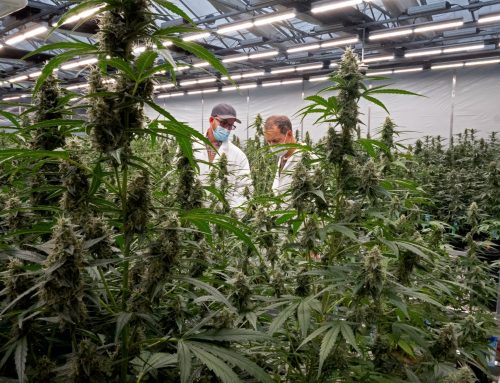Canadian Cannabis Entrepreneurs Turn to Micro-Cultivation to Tackle Oversupply
TORONTO– In response to a surplus of cannabis and declining prices within the Canadian cannabis industry, cannabis entrepreneurs are increasingly embracing smaller micro-cultivation facilities as a means to reduce costs and produce higher-quality cannabis. This shift toward micro-class licenses, which operate smaller cultivation spaces, has the potential to alleviate the current supply glut in the Canadian cannabis market.
According to data from Health Canada, Canada’s total indoor growing area at the end of 2022 was 28% lower than the peak reached in 2020. Furthermore, the federal government issued only 58 standard cultivation licenses in the past year, the lowest annual total since recreational cannabis was legalized in late 2018.
Unlike standard-class licenses, which have no size limits, micro-class permits restrict cultivation to a surface area of up to 200 square meters (2,150 square feet). For the second consecutive year, the number of new micro licensees (130) surpassed that of standard licensees, and industry experts predict this trend will continue.
Entrepreneurs are drawn to micro licenses due to their lower startup costs compared to standard licenses. Additionally, micro license holders have the opportunity to scale up to a standard-class license through an amendment issued by Health Canada. Another factor driving interest in micro licenses is the oversupply of low-quality cannabis from “standard” production sites.
Mitchell Osak, president of Toronto-based Quanta Consulting, identified the growing consumer demand for high-quality craft cannabis as a contributing factor to the popularity of micro licenses. Consumers are now considering both price sensitivity and the desire for the best possible products within their budget, leading them to favor micro-cultivators.
Furthermore, a rule change implemented by Health Canada in mid-2019, requiring applicants to have their facilities fully built out before submitting an application, has also influenced the preference for micro licenses. This change increased upfront costs for large facilities seeking standard licenses.
Smaller production schemes have a reputation for producing better-quality cannabis. Standard licenses were typically associated with larger-scale grows, whereas micro licenses allow for easier cultivation of craft-quality, high-THC, premium products. Some consumers seek out and prefer authentic craft cannabis products, which can predominantly be found in micro-licensed facilities.
Businesses with standard-class licenses are also engaging in production deals with micro-class license holders, collaborating on cultivation, distribution, retail activation, and genetics. This strategic partnership benefits both parties, with large licensed producers outsourcing craft production to micro license holders.
The shift toward smaller cultivation businesses is partly a response to the significant oversupply of low-quality cannabis in Canada. The nationwide inventory of unsold dried cannabis, held primarily by licensed producers, reached an all-time high of at least 1.47 billion grams (3.2 million pounds) by December 2022. This inventory is approximately four times the amount of dried flower and pre-rolls sold at retail during that year.
While the oversupply situation persists, the increasing focus on smaller cultivation facilities presents an opportunity to address the supply glut. As of the latest data, Canada’s indoor growing area dedicated to cultivation activities has decreased by 28% compared to its peak in 2020. The shift toward micro-cultivation facilities reflects an ongoing effort to balance supply and demand within the Canadian cannabis market.



































